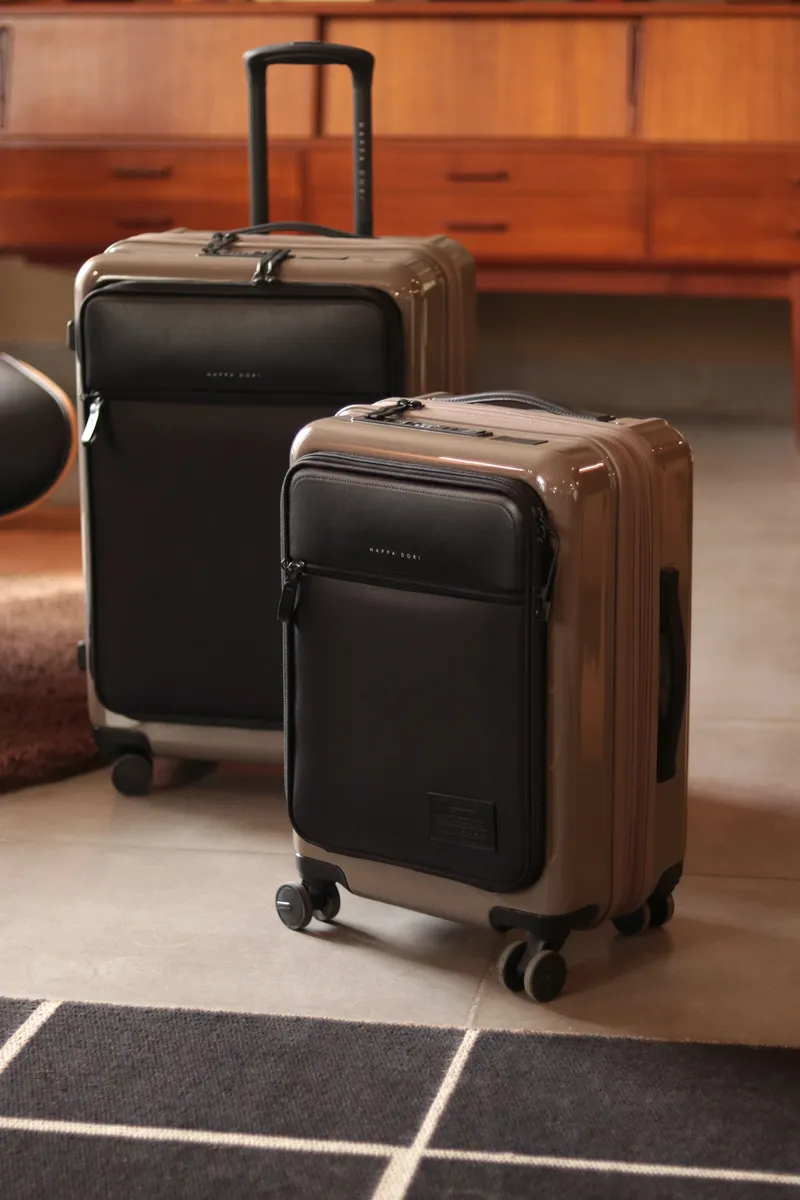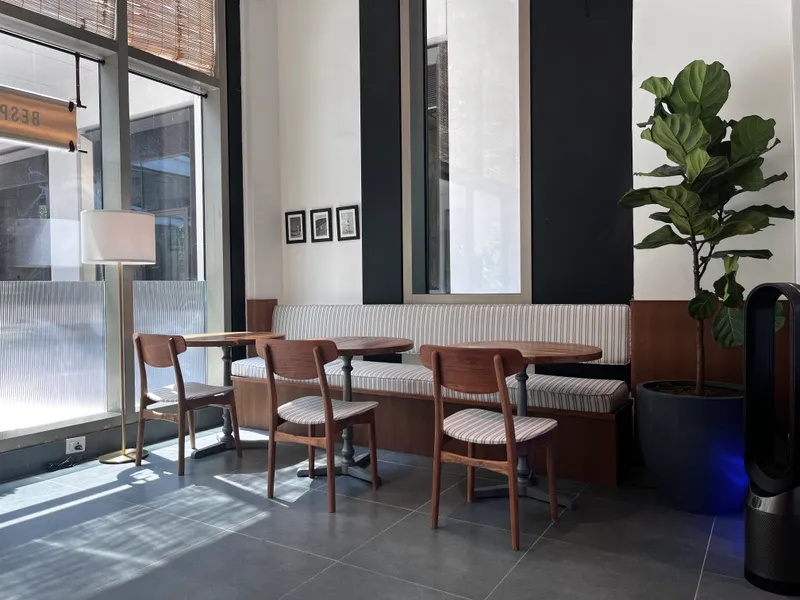From Delhi’s Hauz Khas to London: Nappa Dori is creating timeless products while providing lasting experiences
Almost 15 years in the business, Nappa Dori’s design philosophy continues to rely heavily on simplicity and functionality.
In a country where brands take pride in its ornate embroidery and maximalism, Gautam Sinha’s Nappa Dori distinguishes itself with minimalism.
“I was very clear that I wanted my brand to represent the Indian heritage and combine this with my love for contemporary designs,” Sinha tells YS Life. The Delhi-based luxury label bets big on leather and offers a range of luggage, bags, stationery, and accessories, catering to both the local and global palette—“A mixture of both, very much like myself,” he adds.
Nappa Dori’s design philosophy relies heavily on simplicity, sophistication, and functionality—blending aesthetics with practicality and cultural significance—and is often compared with Scandinavian and Japanese designs.
“We refrain from trend-chasing. We have crafted a brand with enduring appeal; focusing on deeper audience connections and timeless products. We prioritise lasting experiences over fleeting trends…,” Sinha says.
Nostalgia in a trunk
This is probably why, almost 15 years since its inception, Nappa Dori’s first-ever product—the iconic old-fashioned trunk, has continued to remain its best-seller. “It is one of our benchmark products,” Sinha says, who has managed to sell more than 10,000 of these ‘nostalgic’ trunks.

The classic trunk by Nappa Dori
With his father in the forces, Sinha’s childhood involved a lot of moving around across the country. He was always fascinated with the army luggage—huge metal trunks made of raw aluminium sheets—hardy and with a lot of character, but lacking colour. “I wanted to give them some personality and started working on vibrant colours and leather detailing.”
Sinha priced the first trunk at Rs 8,500. “It was a big amount of money for a product that did not have any utilitarian value.” Despite the initial uncertainty about its USP, the vintage-looking trunks in bright hues became a popular choice for both travel and as a home accent. “I did not know why people would buy it….But customers have repurposed it for various uses—from wedding trousseaus to coffee tables…that’s the beauty of the design, it is so versatile that over the years it’s still as relevant as the first day I kept it in the store.”
Today, the trunk is available in six different versions—priced between Rs 12,300 and Rs 17,200. Interestingly, when English fashion designer Sir Paul Brierley Smith visited the Nappa Dori store in Delhi, he loved the design and signed on one of the trunks that Sinha holds very close to his heart.
From Hauz Khas to London

Travel equipment (Rover) by Nappa Dori
In 2010, Sinha, an alumnus of the National Institute of Fashion and Technology (NIFT), Delhi, worked with numerous European high-street brands, designing fashion accessories, before realising that his one true calling was leather. “My love for leather is as timeless as the material itself, it makes for the perfect muse,” says Sinha.
The name Nappa Dori, in fact, is a fusion of two elements central to the brand—Nappa stands for leather and Dori is thread.
When Sinha opened his first store in Delhi’s Hauz Khas village, he had no plans to make one specific product. “There was no mission statement apart from the fact that I wanted to make things that I liked, and make myself some money.”
Starting with a bunch of handbags, belts, wristbands, and the trunks, Sinha managed to grow the brand, expand the product portfolio and Nappa Dori’s geographical presence. The brand has introduced fashion accessories, home decor products and has continued focusing on luxury travel equipment.
Nappa Dori has stores in Delhi, Mumbai, Bengaluru, Pune, Dubai, and London’s luxury shopping hub, Covent Garden. Additionally, it is physically present in over 20 countries through stockists, and it ships worldwide.
With a side of a cuppa
A passionate coffee enthusiast, Sinha envisioned stepping into a F&B space to gauge Nappa Dori’s potential growth. Inspired by French, English, and East European cuisine, Cafe Dori was launched in 2017 to make Nappa Dori an experiential store. Sinha says that the flagship store in Delhi, accompanied by the cafe in Delhi’s abandoned warehouse complex, The DhanMill, has been a pivotal moment in the journey.

Cafe Dori merges design and culinary arts
“The idea was to go beyond simply dining, and create a space that merges design and culinary arts—a multisensory journey as I’d like to term it. Cafe Dori is a place to unwind, indulge your senses, and appreciate the thoughtful details that make up the Nappa Dori experience.”
The cafe, now present across Delhi, Gurugram, Chandigarh, Bombay, Dubai, and London, serves an extensive menu of coffee, iced and hot teas, kombucha, fresh choices and smoothies; alongside curated European home-style dishes. Cafe Dori pays special importance to latte art for its locally-sourced coffee menu. It is also a pet-friendly cafe offering specially prepared food treats for dogs.
Beyond trunks
Starting out by opening a store the first thing did not seem like the wisest choice earlier, Sinha accepts. “A large part of it (starting Nappa Dori) was trying to balance our aspirations and desires with the reality of creating things that are both creative and commercially viable.”

Norman laptop bag by Nappa Dori
However, the brand takes pride in taking the bold steps in refining customer experience and experimenting with materials, ensuring each product is unique. It has continued to rely on its design philosophy—maintaining simplicity—that has helped its product remain timeless.
Nappa Dori clothing is the latest addition to the brand. It has launched a capsule collection for the European market, featuring menswear. “We wish to focus on reviving classic workwear jackets, pants, and shirts. The clothing line stays true to our brand’s design philosophy. It draws inspiration from vintage, nostalgic silhouettes and pays homage to Indian fabrics,” Sinha explains.
Going ahead, Sinha says, the brand does not have any concrete plans— “It has been more of an organic process over the years.” However, Sinha reveals that international stores are definitely in the cards.
Edited by Megha Reddy







